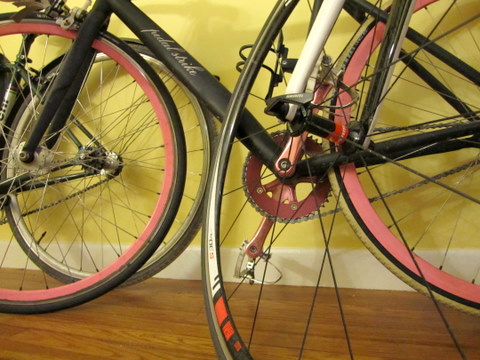I remember the Kobe earthquake that crumpled up a city on January 17, 1995. Though safely esconced in Tokyo at the time, it was - until a few days ago - the worst natural disaster that had occurred in Japan in my lifetime.
Day after day, we read in the newspaper and saw on the news the tragedy compounded. Over fifteen years later, a single picture is brought to the fore when I think of massive earthquakes and the physical and psychological wounds they bring with them. A highway overpass [a segment of the Hanshin Expressway] had broken at its cement base, sliding over to lean on the asphalt below. A lone truck lay overturned, scattering its cargo of bright mandarin oranges, a fist-sized fruit ubiquitous in Japanese winters.
The images I will remember from the Sendai earthquake are not so much those of concrete rubble, but of empty, wet land where buildings once stood, and the aerial view of the Fukushima nuclear reactor. When Mike woke me up to inform me that a 9.0 magnitude earthquake had rocked the northeastern coast of Japan on Friday night, I was unaware of the panic that would eventually settle around me, breaking apart the security of my life like so many nuclear atoms. A tsunami followed, leaving [what else?] devastation in its wake, but fires seemed contained. I called my parents in Tokyo; and believing the worst was over, headed out for a ride on Saturday morning.

I could tell you that riding that day was a “way to cope,” or that I felt a need to “connect with my community during a time of tragedy,” or any number of bullshit things that it wasn’t. Riding that day was a purely selfish act, permitted by my oblivion to the circumstances. Like many, I naively believed that it couldn’t possibly get worse, that the tragedy had played out, and finished. After all, earthquakes are a part of life if one lives in Japan; a fact almost self-consciously reflected in the nation’s policy towards providing humanitarian relief to other nations which suffer similar natural disasters. Indiscriminate in its rampage, the fear of earthquakes binds the Japanese people together in acknowledged vulnerability. They have the inexplicable power to pull people’s heads out of their asses, to hit the pause button on the self-centeredness so prevalent in my peaceful, militarily emasculated country.
Which is why I am sure, had I been in Tokyo, my reaction would have been equally self-indulgent: “it’s Saturday, time to ride.” After all, it took two roofs blowing off a nuclear reactor for the realization to settle in that things were potentially far more serious. That things weren’t yet finished. Since then, with three reactor blasts in the last four days, “terrified” is an understatement. With the nuclear plant on the brink of a meltdown, food and bottled water are becoming scarce in Tokyo as grocery stores are cleared out. Scheduled, three-hour black outs are in effect in parts of the city to save energy, as radiation levels in the atmosphere increase. “Call me paranoid,” my sister said, “but I bought a Geiger counter for Mom and Dad.” We watched the news helplessly as another 6.4 magnitude earthquake rocked Shizuoka prefecture early Tuesday morning.
And though currently residing on the other side of the world, in a country fairly inexperienced in the field of earthquakes, I still expected from others the selfless empathy that I associate with major earthquakes in Japan. What I saw instead was corporate marketing thinly disguised as “humanitarian relief efforts.” “[Corporate/Celebrity name]’s [noun] for Japan,” is becoming a morbid Mad Libs joke; a depressing reminder that in the end, natural disasters are ideal vehicles for feel-good PR. With each attempt to aid coupled with an obligatory fist pump towards a profit seeking entity, a self-interested conclusion became increasingly difficult for me to ignore. I rolled my eyes at Lady Gaga’s bracelets for Japan [not only because of the evidently lax use of the verb “design” in that context], but the Rapha Rides for Tohoku hit a little closer to home.
For to go out on a bike ride in Japan, at a time of such uncertainty and loss, and in the face of a potential nuclear crisis, annhilates my own belief in Japanese empathy. It encourages the navel-gazing that I thought could not co-exisit with natural disasters taking place on Japanese soil, the very characteristic that one must forget at the doorstep in order to begin rebuilding a devastated region. Though compassionate in theory, a charity ride in Japan evokes too much apathy in practice, so much more so as the crisis continues to unfold. To ride, then, seems to exhibit a conscious indifference to those still searching for their family members or pulling out the perished. And as a Japanese person, I know that no matter how altruistic the stated cause, no matter how much money could potentially be raised, riding a bike in Japan at a time like this is something I simply cannot do.
It is a deeply personal choice. Perhaps one that some may say is misguided or too rigid. It is, however, one in line with my own convictions, and one that, I hope, attests to my own capacity for compassion and empathy.